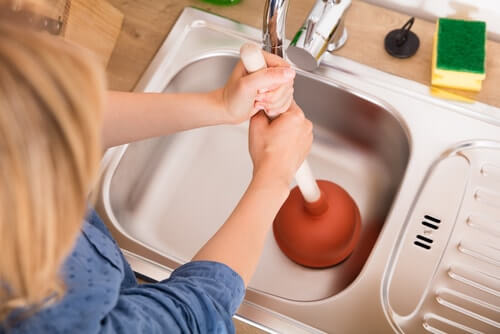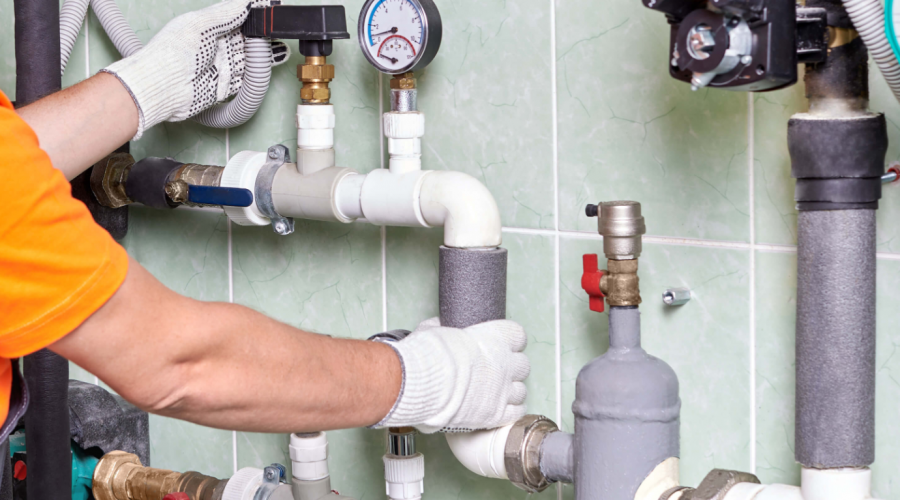The content further down about Plumbing Emergencies: Tips on What To Do Before is unquestionably insightful. Try it and make your own ideas.

Plumbing emergencies can strike at any time, creating tension and potential damages to your home. Whether it's a ruptured pipeline, a stopped up drain, or a leaking faucet, knowing just how to handle the circumstance until a professional plumber gets here can save you from further complications. This write-up gives necessary emergency plumbing pointers to assist you reduce damage and reclaim control throughout a plumbing crisis.
Switch off the Water System
The primary step in any pipes emergency situation is to turn off the water supply. For local problems, such as a leaking tap or bathroom, turn off the shutoff near the fixture. In the case of a significant leak or burst pipeline, locate your home's major water shut-off shutoff and turn it off quickly. Understanding the location of these shutoffs in advance can save useful time during an emergency situation.
Address Little Leakages with Short-term Solutions
Little leaks can promptly end up being substantial issues if left unchecked. Make use of these short-term solutions up until specialist assistance gets here:
While these solutions aren't long-term, they can aid reduce water loss and damages.
Unclog Drains Safely
A clogged up drain can be an irritating and messy problem. Below's how to tackle it:
If these approaches don't work, prevent making use of excessive force, as it may aggravate the clog.
Manage Overflowing Toilets
An overflowing bathroom can trigger prompt chaos. Here's what you ought to do:
Shut down Your Hot Water Heater
In particular emergency situations, such as a ruptured pipeline, it's important to shut down your hot water heater. This protects against getting too hot or damages to the device when water quits moving. Shut off the power supply to the hot water heater (electrical or gas) and let it cool off to prevent potential risks.
Temporarily Stop a Burst Pipeline
A ruptured pipeline can cause considerable water damages in minutes. To reduce the concern:
Call a specialist plumbing technician right away to deal with the problem permanently.
Take Care Of Frozen Water Lines Thoroughly
In cooler environments, frozen pipelines are an usual emergency. If you suspect an icy pipeline:
Protect against Additional Damage
Taking fast action to minimize damages can save you money and time over time. Here's exactly how:
. Have an Emergency Plumbing Package
Prepare a fundamental pipes emergency package to deal with small issues successfully. Your kit must consist of:
Having these tools handy can make a considerable difference in your capability to take care of emergency situations.
Know When to Call a Professional.
While quick fixes can assist briefly, particular pipes issues need instant specialist interest. Call a plumbing professional if:.
Without delay contacting an expert makes sure the problem is settled correctly and avoids additional issues.
Verdict.
Pipes emergencies can be overwhelming, however with the ideal expertise and devices, you can manage the situation efficiently up until aid gets here. By switching off the water, addressing tiny leaks, and using short-term repairs, you can reduce damage and maintain your home safe. Keep in mind, these ideas are short-lived services; always seek advice from an accredited plumbing technician to manage the source of the issue. Preparation and quick thinking are your finest allies in any type of plumbing emergency.
8 Helpful Tips for Managing Plumbing Emergencies at Home
If your plumbing system hasn’t failed once, wait for it because almost everyone has a story to tell. Sometimes, it could be simple emergencies such as a leaking pipe, a blocked cistern, or even a big burst pipe. In situations like this, you need to have some handy tips to save you some money and from possible damages.
Take care of minor issues early.
Sometimes, you could have avoided an emergency by taking proactive measures while it was still early. Some major plumbing emergencies can be a result of an ignored minor issue. We recommend that you have items like plumbing tapes and other related items. A plumbing tape can allow you to manage minor leaks before the plumber arrives.
Cut off the water supply.
This tip is essential in almost any type of leakage problem. For problems like minor leakages in the toilet or kitchen, turn off the supply that takes water to the affected pipes. If the leakage is a major pipe, you must shut off the supply valve to the entire building. This will help you avoid flooding your home and neighbors if you share a flat.
Know your plumbing system
Folks typically move into a new apartment without understanding the water supply around the building. This can prove disastrous if a water emergency arises and the plumber is far away. The previous tip will prove useless if you don’t practice this one. More importantly, know where your water shut-off valve is located – you’ll need that knowledge to prevent potential home floods.
Have some common handy tools
There are lots of plumbing emergencies that you can handle without hiring a plumber. That’s why you must keep some tools available always. Some tools that you can use to fix simple plumbing emergencies easily include plumbing tapes, screwdrivers, thread seal tapes, plungers, pliers, tape measures, and rubber gloves.
Insulate your pipes from cold
You’ll save yourself from many plumbing expenses if you protect your water pipes from the cold. This is because of the harmful effects that cold weather can have on your pipes. During winter, your pipes can burst from being overly expected to freezing temperatures. So, make sure insulators are there to keep the pipes working correctly.
Avoid practices that will clog your toilet.
Many people indulge in practices that can damage the plumbing system of the entire building. One of these is when they use their toilet to dispose-off garbage. They flush all kinds of things, such as paper towels, bandages, hairs, female sanitary products, etc., down the toilet. This will block your toilet in the long run, incurring unnecessary expenditures. Dump such waste in the trash instead.
Check your dials regularly.
Sometimes, there could be leakages in your home without noticing them in time. So, constantly monitor your water meter dial. If the dial is reading when there is nobody using water, this is an indicator that there is leaking. Check for leaks immediately. Call a plumber as soon as possible if you can’t find any.
https://www.constructionplacements.com/8-helpful-tips-for-managing-plumbing-emergencies-at-home/

We were made aware of that write-up on Expert Tips for Emergency Plumbing Repairs through an associate on another site. In case you enjoyed our blog post plz make sure you remember to share it. Many thanks for your time. Kindly check our website back soon.
Call Today